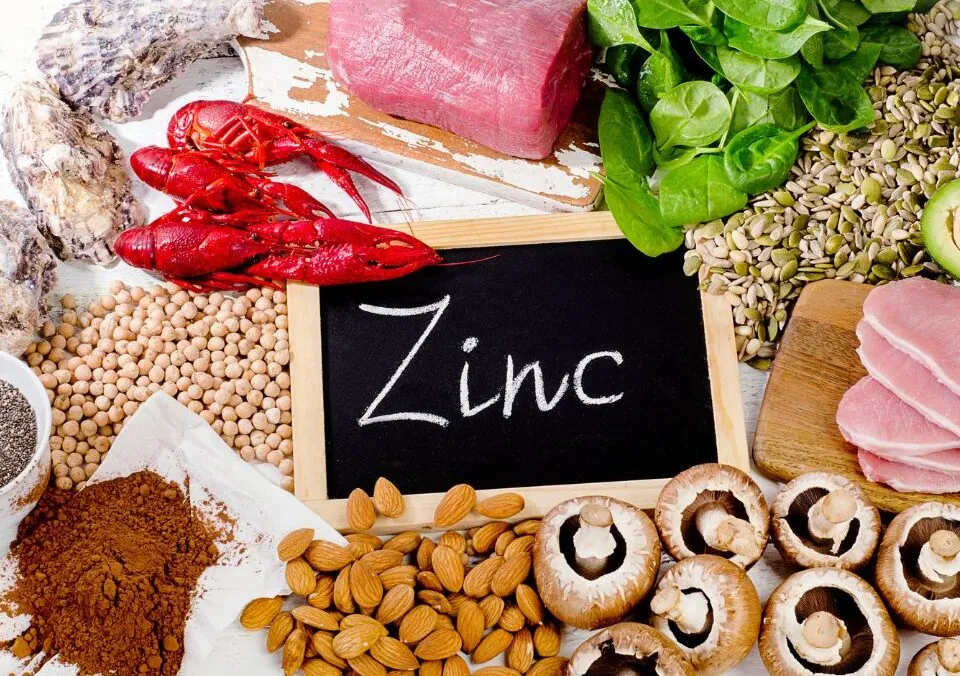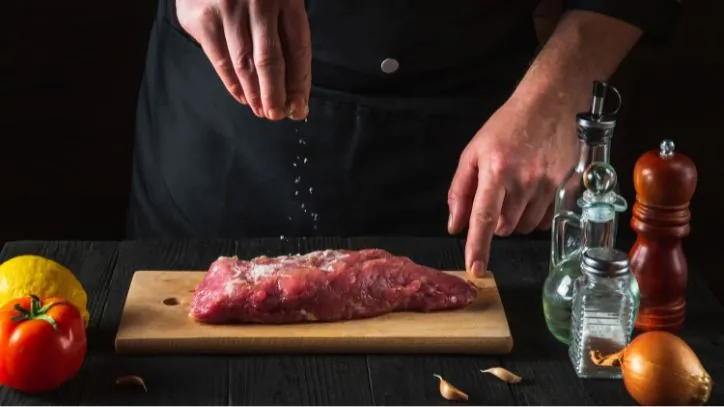Blog
Make Sure Your Get Enough Zinc!

In our fast-paced world, maintaining a healthy body can sometimes feel like a daunting task. With a plethora of vitamins and minerals to consider, one nutrient that often doesn’t get the attention it deserves is zinc. It might not be as popular as vitamin C or D, but zinc is essential for maintaining optimal health and well-being. According to registered dietitian Helen West, zinc plays a crucial role in various bodily functions, making it vital for everyone to ensure they get enough of it every day.
The Importance of Zinc
Zinc is a trace mineral, meaning our bodies require it in small amounts for various critical functions. It is a key player in the immune system, wound healing, protein synthesis, DNA synthesis, and cell division. Research shows that zinc is necessary for the activity of over 300 enzymes in the body. These enzymes facilitate biochemical reactions that are vital for our health.
For instance, zinc helps to metabolize macronutrients, which are carbohydrates, proteins, and fats. This means that when we consume food, zinc is involved in breaking it down and utilizing it for energy and growth. Additionally, zinc is instrumental in the growth and repair of tissues, making it especially important for recovery from injuries and surgeries.
Moreover, zinc is critical for the proper functioning of the immune system. It helps develop and activate T-lymphocytes, a type of white blood cell essential for adaptive immunity. A deficiency in zinc can lead to a weakened immune response, increasing susceptibility to infections and illnesses. Centers for Disease Control and Prevention (CDC) emphasizes the importance of adequate zinc intake in preventing illness and managing health.
Daily Requirements for Zinc
As our bodies do not store zinc, it is imperative to obtain sufficient amounts through our diet daily. According to the National Institutes of Health (NIH), the recommended dietary allowance (RDA) is about 11 milligrams for men and about 8 milligrams for women. Pregnant and breastfeeding women may require more, with recommendations of 11 to 12 milligrams per day.

Natural Food Sources of Zinc
Not all foods contain zinc in equal amounts. It is beneficial to incorporate a variety of zinc-rich foods into your diet. Here are some of the foods that are especially high in zinc:
- Meats: Red meats, in particular, are rich sources of zinc. Beef, lamb, and pork provide ample amounts of this mineral. According to a study, the absorption of zinc from animal sources is much higher compared to plant sources.
- Shellfish: Oysters stand out as one of the best sources of zinc. Just a few oysters can provide the entire daily recommended intake of zinc. Other shellfish, such as crab and lobster, also offer significant amounts of zinc.
- Legumes: Beans, lentils, and chickpeas are great plant-based sources of zinc. However, they also contain phytates, which can inhibit zinc absorption. Soaking, sprouting, or fermenting these foods can increase zinc bioavailability.
- Seeds: Pumpkin seeds, sesame seeds, and hemp seeds are particularly high in zinc. Snacking on these seeds or incorporating them into dishes can help increase your zinc intake.
- Nuts: Nuts such as cashews and almonds also provide zinc. They are not only a great source of healthy fats but also offer protein and fiber.
- Dairy Products: Foods such as cheese and yogurt are good sources of zinc, making them an excellent option for vegetarians and individuals seeking to boost their zinc levels.
- Eggs: Eggs are another versatile food source that contains a moderate amount of zinc.
- Whole Grains: Whole grains like quinoa, oats, and brown rice contain zinc but also have phytates, which can hinder absorption. Opting for whole grains as part of a balanced diet is beneficial overall.
- Dark Chocolate: For those with a sweet tooth, dark chocolate can be a delicious source of zinc. Choose chocolate that has at least 70% cocoa to reap the benefits.
Agricultural Strength in Arizona
In Arizona, local agriculture produces some of the best zinc-rich foods available. The state is home to vibrant farming communities that offer a variety of fresh meats, eggs, dairy products, legumes, whole grains, and more. Supporting local farmers not only benefits your health but also boosts the local economy. If you’re interested in finding locally sourced foods, the Fill Your Plate website is a fantastic resource that connects consumers with Arizona farmers and ranchers, ensuring that you have access to quality, nutritious foods.
The Role of Supplements
While it’s generally best to obtain nutrients from food sources, zinc supplements are available for those who may struggle to meet their daily needs through diet alone. However, it is crucial to approach supplementation with caution, as excessive zinc intake can lead to negative health effects, including nausea, headaches, and interference with the absorption of other essential minerals such as copper. It is advisable to consult with a healthcare professional before starting any supplement regimen.
Signs of Zinc Deficiency
Recognizing the signs of zinc deficiency can be vital for maintaining health. Common symptoms may include:
- A weakened immune system, leading to frequent infections
- Hair loss
- Diarrhea
- Dry skin or skin lesions
- Delayed wound healing
- Loss of taste or smell
- Decreased appetite
If you suspect that you may be deficient in zinc, it is important to seek medical advice. Healthcare professionals can perform tests to assess your zinc levels and recommend dietary changes or supplements if necessary.
Conclusion
In conclusion, ensuring adequate zinc intake is a crucial aspect of maintaining overall health. This essential mineral supports a plethora of bodily functions, including immune health, tissue repair, and metabolism. By incorporating a variety of zinc-rich foods into your diet, you can help keep your body functioning optimally and reduce the risk of illness.
Don’t overlook the power of local farming in your area, especially in regions like Arizona, where the agriculture is diverse and robust. Visit sites like Fill Your Plate to discover fresh, locally produced foods that can help you meet your zinc needs while also supporting your community.
Remember, while supplements are an option, a well-balanced diet should always be the first strategy in ensuring that you get the necessary nutrients for a healthy life. Always consult a healthcare professional if you have concerns about your zinc intake or overall nutrition.
By Heide Kennedy, Arizona Farm Bureau Communications Intern


















